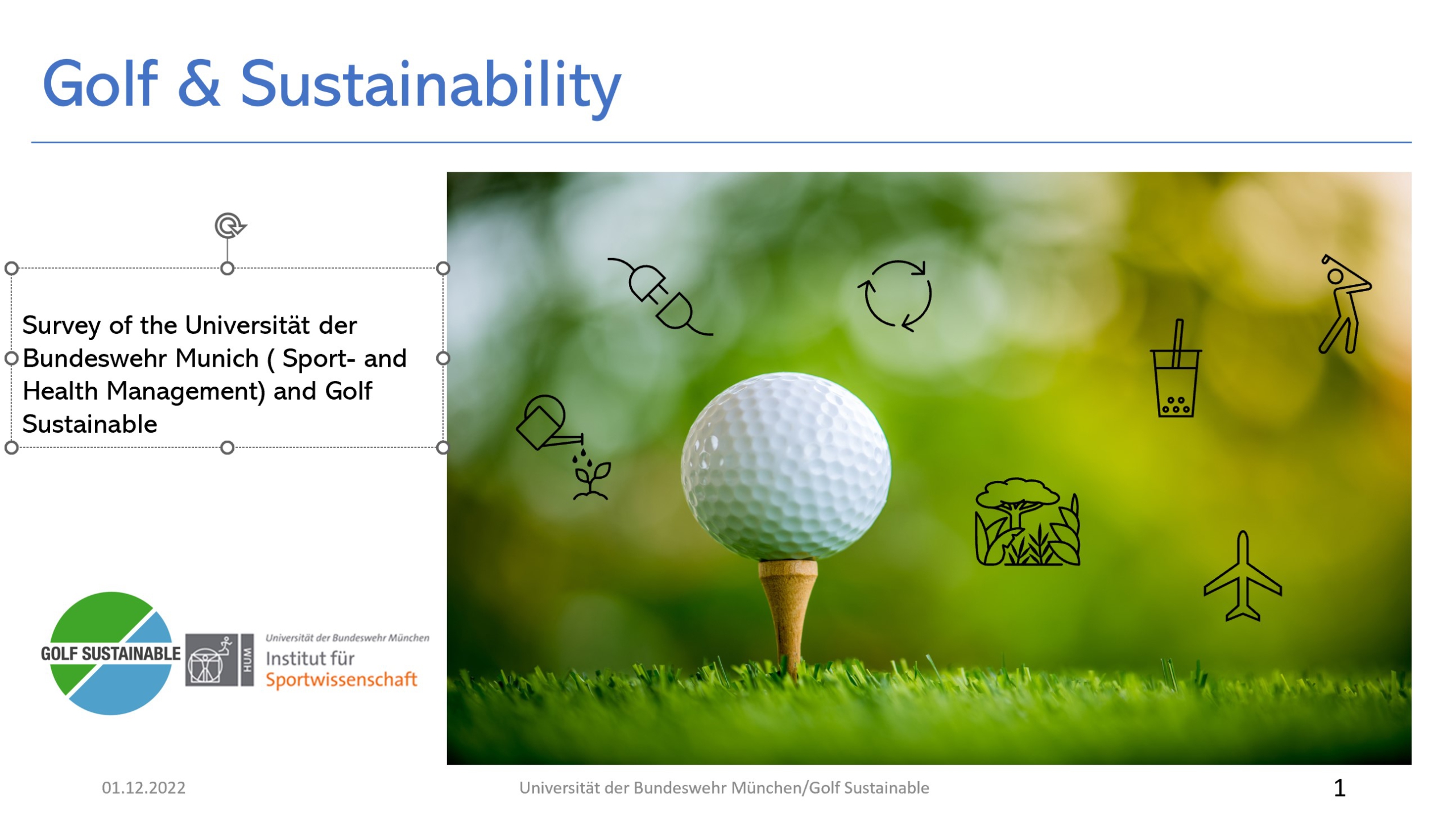Prevention of plastic waste top issue for German golfers
In the summer, Golf Sustainable conducted a “Golf and Sustainability” survey with the Universität der Bundeswehr in Munich.
Among other things, it emerged that “preventing plastic waste” received the highest approval ratings from the golfers surveyed. In addition, golfers were also asked about the importance of biodiversity, water management, Co2 neutrality and e-mobility.
“With the survey on the topic of golf & sustainability, we wanted to provide an initial analysis of attitudes and behaviours among golfers,” notes Prof. Dr Christopher Huth from the Department of Sports Management at the University. The survey shows that the topic of sustainability, with its various facets, is apparently quite present in the minds of golfer’s mindsets, but in some areas, it still needs to be of more importance.
Irrigation with potable water no longer communicable
The topic of water management is the one where golfers see the need for changes in action. Only four per cent of the respondents still consider the use of drinking water for sprinkling golf courses to be correct. 58.25 % said they also want to play on brown fairways as long as there are no bare spots. 28.46% of respondents also accept a higher membership fee or an increased green fee for an improved sprinkler system or software.
Respondents gave less weight to two issues: Co2 neutrality and renewable energy. Less than one-third (30.77%) agreed that using renewable energy on golf courses mattered to them. Addressing the issue is expected by 38.11%. CO2 neutrality also only plays a role for 16.21% when selecting a destination for a golf vacation.
At the same time, e-mobility on golf courses has yet to be a factor that concerns many golfers. With 14.26% of respondents, only a tiny proportion uses an e-car. 26.39% of golfers expect their golf facility to have an e-fueling station.
Climate change will bring about a change in attitude
“The issue of sustainability will increasingly concern golf facilities in the future with more and more consequences of climate change and new regulations. That’s why a gauge of golfers’ attitudes is interesting,” sums up Petra Himmel, founder of the Golf Sustainable platform. The study’s authors also assume that golfers’ attitudes toward specific topics could change relatively quickly if the effects of climate change intensify. “The high weighting of the topic of water management is certainly also due to the summer of drought in Germany, which many golfers experienced in their golf clubs,” Petra Himmel notes. “Such experiences greatly change the awareness of an issue.”






 Image: Destination Navarino/Temes
Image: Destination Navarino/Temes